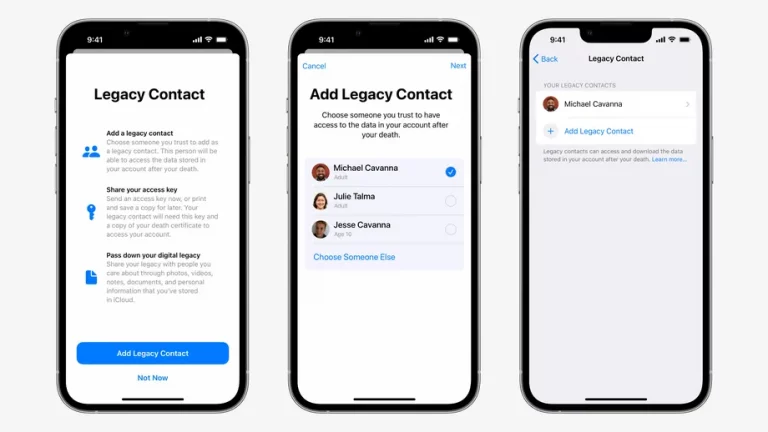While our gadgets provide the most convenient method to do our tasks, they also serve as our personal data vaults, where we store personal information, images, and a variety of other items throughout the course of time. The cloud service contains everything, but what happens if you die while using it?
Accessing someone’s iCloud account on an iPhone is only possible once they have entered their passcode. Apple is working on a solution to this problem right away. In the near future, it will allow you to designate Legacy Contacts who will have access to your iCloud data after your death while you are still living.
With the release of the new iOS 15.2 beta, Apple has begun testing the Digital Legacy programme for all iCloud customers. Apple’s stable version of iOS 15.2 will be released in the coming days, and the public rollout will begin as soon as Apple begins releasing the stable version of iOS 15.2.
You may designate up to five contacts as Legacy Contacts, and these individuals will have access to your iCloud account and will be able to see or modify your photographs, documents, and even iCloud purchases. You can designate up to five contacts as Legacy Contacts. This is vital for those who wish to collect memorabilia, even if it is in digital format, and who want to be able to do so.
While setting up Legacy Contacts may be straightforward, actually using the functionality would need authentication. People who are the dead person’s Legacy Contacts will be required to provide evidence of death, which will include a copy of the deceased person’s death certificate and an iCloud account owner’s death certificate.
They will also require an access key, which they should have received from the owner of the iCloud account before their death. This is a considerably easier approach than what Apple demands at the moment, which entails a court order with no assurance that the data would be turned over to the government.
While Apple’s new Digital Legacy programme will provide solace to the owner’s family and friends by allowing them access to items that they would like to remember the departed by, it goes against the user’s right to privacy in a few ways. When it comes to privacy, Apple has taken great delight in being in the forefront of the fight, telling consumers that the iPhone is the most secure gadget on the market. Most people enjoy it because it is true to some extent, which may explain why most people prefer it in the first place.
Apple has joined Google and Facebook in preserving the right of survivorship on their respective platforms with the introduction of Digital Legacy. Both Google and Facebook allow their users to designate a small number of contacts who will be able to access their data after they have died. Apple’s functionality, on the other hand, is still under beta testing, therefore there is minimal information available. However, as soon as the function is made available to the general public, we want to learn more about how Digital Legacy works and the needs it has.

